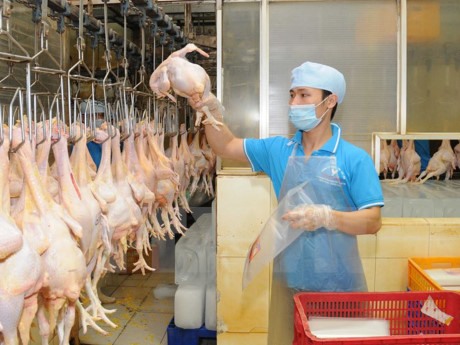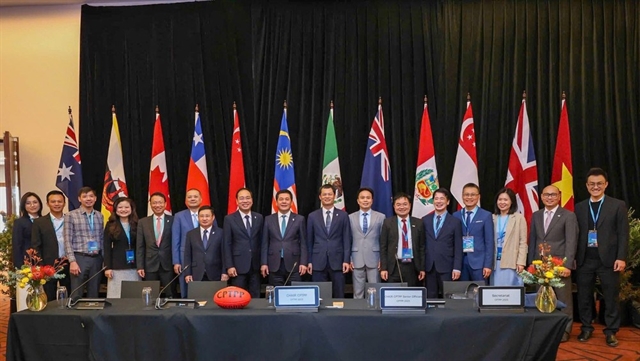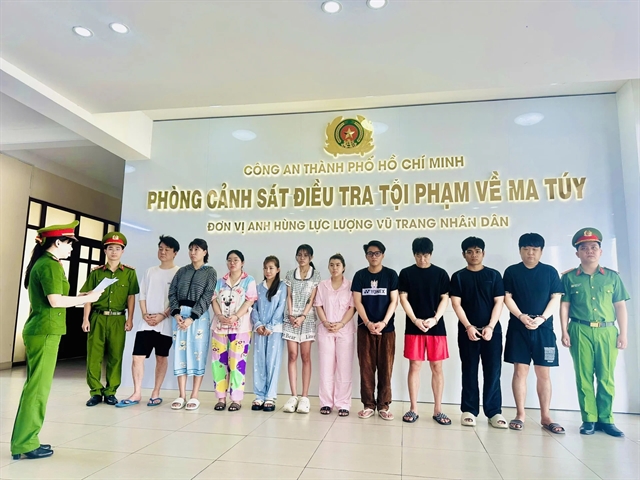 Economy
Economy

Although Việt Nam’s livestock industry is thriving, its export potential has yet to be tapped. Most of the country’s livestock products only serve domestic markets, Phạm Văn Đông, director of the Department of Animal Health under the Ministry of Agriculture and Rural Development (MARD).
 |
| The export of livestock products remains very modest compared to the development potential due to the low quality of slaughterhouses and livestock farms and risk of disease. — VNA/VNS Photo An Hiếu |
HÀ NỘI — Although Việt Nam’s livestock industry is thriving, its export potential has yet to be tapped. Most of the country’s livestock products only serve domestic markets, Phạm Văn Đông, director of the Department of Animal Health under the Ministry of Agriculture and Rural Development (MARD).
According to Đông, the export of livestock products remains very modest compared to the development potential due to the low quality of slaughterhouses and livestock farms and risk of disease.
“Animal husbandry in Việt Nam is characterised by small-scale, scattered farms. Areas where there is a high animal husbandry density always face high risk of disease, affecting the export of livestock products,” Đông told a seminar held in Hà Nội this week.
The total number of pigs slaughtered in 2016 reached over 29 million, an increase of 1.3 million compared with 2015. The figure for poultry was over 360 million, up 20 million compared to 2015, according to statistics from MARD.
Việt Nam has been exporting frozen suckling pigs to Hong Kong and Malaysia. The whole country has six slaughterhouses supplying pork for export to Hong Kong and two providing pork to Malaysia.
In 2016, the output of exported pork totaled 11,000 tonnes, worth nearly US$100 million. In the first five months of 2017, the figure was 10,600 tonnes, worth nearly $46 million.
Regarding poultry, neither live chicken nor processed chicken has been exported, Đông said, adding that at present, there are only two companies that have registered to export heat-processed chicken products to Japan, namely Koyu & Unitek Co Ltd and C.P. Việt Nam Livestock Breeding JSC.
Concerning poultry eggs, there are currently five establishments producing and exporting eggs, including salted duck eggs and canned quail eggs, to Hong Kong, Singapore and Japan.
Nguyễn Đức Hoàng, chairman of Thắng Lợi Co Ltd, specialised in processing and exporting pork, said at the event that some of their partners from Singapore, Taiwan and South Korean had expressed their wish to import Việt Nam’s processed suckling pork but at the end they change their mind because Vietnamese products fail to meet their requirements on production line and safety hygiene.
In order to boost livestock product export, the livestock industry should focus on improving the quality of the production line at all stages, rather than the quantity or the prices of pork. The two most important focuses should be conditions at the production facilities and animal health, Hoàng said.
MARD’s Department of Animal Health reported that it had approved pilot schemes for the establishment of disease-free areas in the northern provinces of Thái Bình and Nam Định. However, the project has been delayed.
Hoàng Thị Tố Nga, deputy director of Nam Định Department of Agriculture and Rural Development, said Nam Định faced many difficulties in capital mobilisation for the project. "To date, only two communes in Nam Định have been recognised as disease-free areas,” Nga said.
Hoàng said the State should set up disease-free areas as neither localities nor businesses have enough resources to do so. In the long term, the establishment of disease-free areas for pig and poultry breeding is necessary to increase exports, he added.
Đông said livestock breeders should study and develop self-controlled production chains, which strictly control all stages of production from breeding to slaughter to fulfil requirements of importing countries.
Deputy Minister of Agriculture and Rural Development Vũ Văn Tám said Việt Nam’s livestock industry should be restructured in a sustainable and competitive manner, adding that a shift from small-scale household breeding to large-scale farming will enable farmers to supply products that meet export requirements.
Large-scale animal farms typically use advanced technology helping them meet importers’ requirements on techniques, quality and hygiene, he said.
He suggested local companies invest in modern facilities to produce and store processed products for export. The MARD will propose that the Government provide credits for businesses to expand export markets, he said. — VNS




